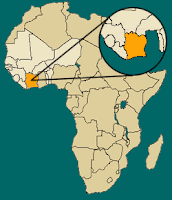One of the consequences of caring for children and families in my
community is that helping children enable them shape how their brain develop
because bonding and attachment in early infancy age are critical to the child’s
normal development. Children who lack proper bonding will be detached in life
and will find it difficult to relate with people. A child that does not have a
bond with the parents, family and caregivers will perceive herself as being a
loner and not having support resources and also manifest low self-esteem. Proper
bonding will translate to proper development of the child. High quality early
learning experience is important to children because it helps in nurturing and
bonding that is assured. There should be enough funding from the state to help
families facing challenges to get services that can help and support them.
Disadvantaged and special need children need to have access to programs that
provides early learning, early intervention, health and family supports to help
children reach their full potential. “It is easier to build up a child than it
is to repair an adult----choose your words wisely” unknown author.
Children learn best through play. For children to have a quality
education, it has to be through play. Play helps children use their hands on
activities for learning about life. Children make sense of the world around
them through play and manipulative. Play helps children develop skills they can
not otherwise know. A high quality early childhood education with play will
benefit children with special needs in helping them interact, communicate and
learn. “Good teaching is one–fourth preparation and three-fourths pure theater.” Gail Godwin.
Family situation and environment affect children emotionally
because the government needs to invest on childhood education to prepare them
for school readiness. When families are
provided with resources to help their children it makes their life better and
easier. I know a lot of immigrant families that need services to help their
community, I am glad to be in the early childhood education program with child
advocacy and policies. “Having a place to go - is a home, having someone to
love- is a family, having both – is a blessing.” Donna Hedges. “If the family were a fruit, it would be an
orange, a circle of sections, held together but separable – each segment
distinct.” Letty Cottin Pogrebin.
My goal is to put together an early education system that helps
promote high quality early education and destressing the lives of families and
their children, by utilizing the services of health professionals, early
learning experience and development, and family leadership and support.
I would like to use this opportunity to thank
all my colleagues for their insights and
contributions to what I know today. May God bless you all as we move forward in
becoming children advocates.

